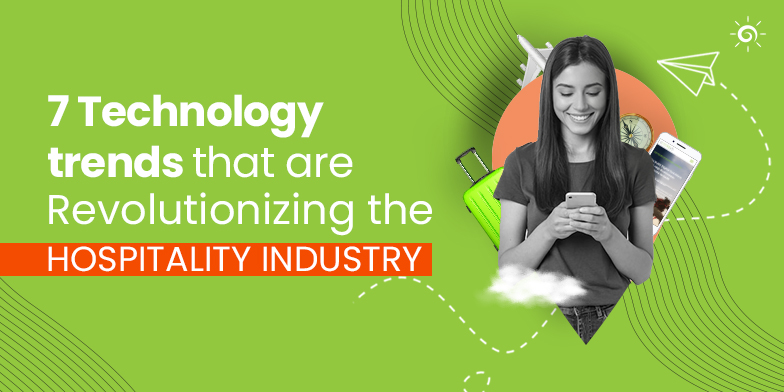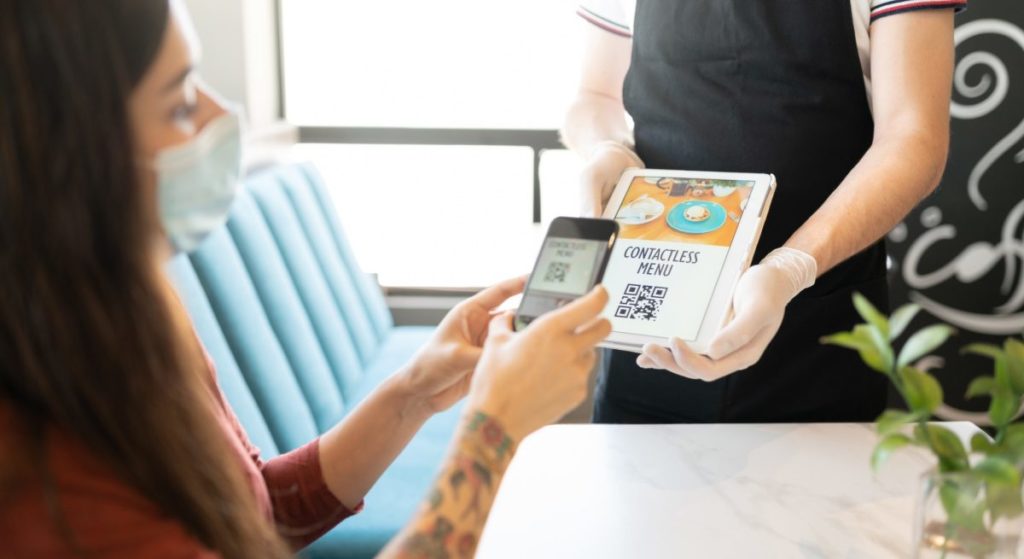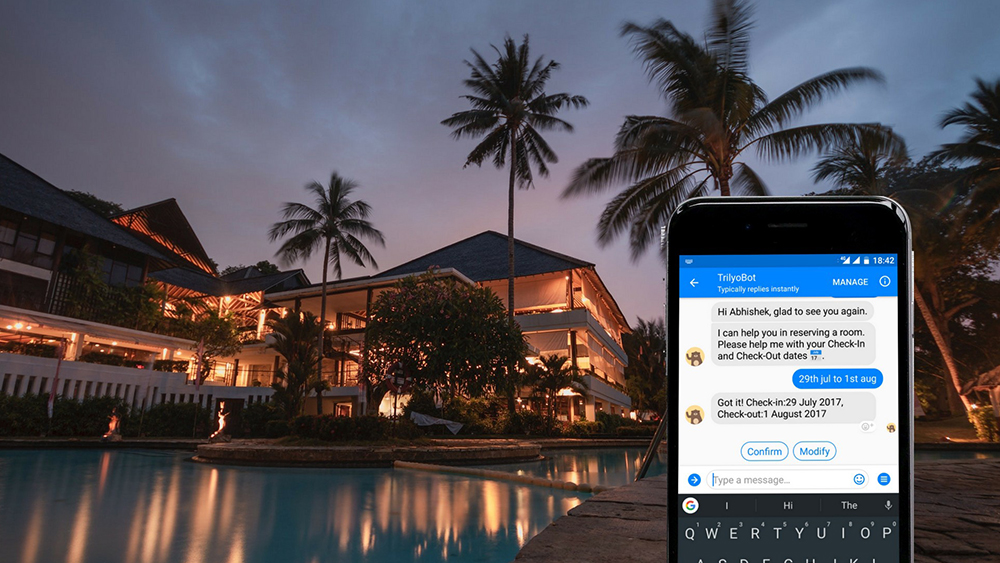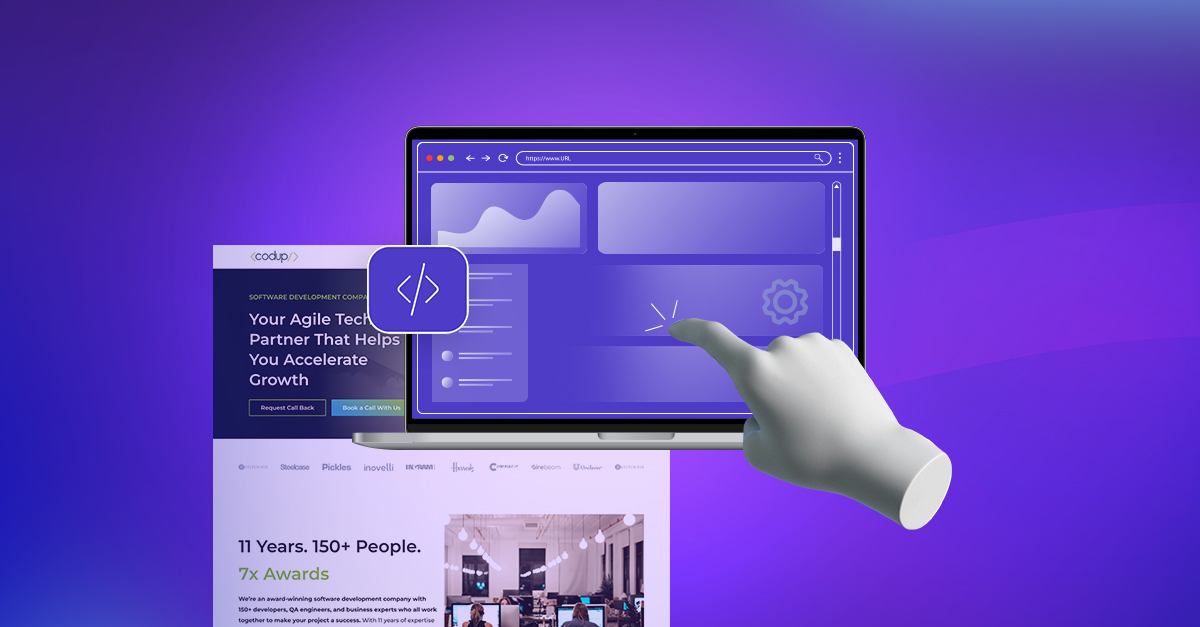7 Technology Trends That Are Revolutionizing The Hospitality Industry

Picture this: you have a hotel. It’s past midnight, you’re wrapped in your blanket, lying in a comfortable bed, but a customer is online on the other end of the world, looking for a hotel suite. For that customer it’s lunchtime, and they are in the middle of planning and confirming their next trip. They asked a question, but by the time you get back to them, they have already booked a room, but not at your hotel.
It is definitely the worst feeling to lose a potential customer, especially when the travel ban is lifted after two years of isolation from closed borders. That said, you wouldn’t want to lose business due to the lack of workforce or changed preferences of the potential customers.
Since the pandemic, travelers have preferred self-services over waiting to be served. This is where being technologically advanced works for your benefit. With tech-enabled processes at every step of the way — from planning to booking tickets to contactless check-in and 24/7 digital concierge — the travelers’ expectations are accelerating the hospitality tech revolution.
Table of Contents
1- Gamification for Travel Planning
2- Virtual Reality Tours
3- B2B Travel Platforms
4- Contactless Technology
5- Chatbots as Concierge
6- IoT for Optimum Control
7- Robots Taking Over Luggage duties
8- Conclusion
According to the NYU Tisch Center of Hospitality Report, 81.7% of hoteliers had implemented a new technology during the pandemic or have planned its implementation in 2022. The reason, well, it is too common to say the technology incorporated in day-to-day operation is essential to minimize human error. Where it plays a part in doing so, it is imperative for hoteliers to maximize service efficiency and improve the guest’s experience.
That said, here are seven hospitality technology trends reshaping the traveling industry in 2022.
1- Gamification for Travel Planning
People today want something extra to make their work, something interesting. The same goes with tour planning — although a fun chore, it can become even more with gamification. Today hospitality companies are leveraging gamification, using game designs in a non-game context, turning all activities of travel planning — from booking an agent to rooms and deciding on a destination a fun activity.
By featuring gamification mechanisms such as challenges, chances, and rewards for the completion of a challenge or simply sharing, companies can easily capitalize on human motivation. Imagine a website that gives incentives and gifts to the users upon completing a travel puzzle. On its completion, they receive a score or points for their next trip.
Gamification is not a new concept, but its uses are novel in the travel industry. It has proven to boost data driving, customer loyalty, brand awareness, user-generated content, online engagement, and revenue.
2- Virtual Reality Tours
Consider this: you are planning your next trip to Venice. You look up a tour guide who suggests a hotel to stay in for your trip. Looking up at their website, you get confused as the images they used were not as good as you expected, but there is a four-star rating on Google. You sure will be reluctant to book a suite for the trip before you arrive.
So, what can hoteliers do to drive this reluctance away and show their curated charm to potential guests before they arrive?
Well, virtual Reality is the new norm that is a must to stay competitive in the industry. Today, numerous companies give virtual tours of their space to potential guests. It makes an impression as it showcases the main features of the space through visual immersion.
Still skeptical? Think about it: a futuristic technology that prompts future guests to daydream about an experience of the space booked before they arrive. According to a study by Tourism Management, VR increases the elaboration of mental imagery and presence, ultimately providing a better brand experience.
3- B2B Travel Platforms
Big Agent Rewards by Travel Gossip is an amazing example of a B2B travel platform. It is an online portal where travel agents and hoteliers connect and work to earn rewards while doing business.

Every hotel reservation takes time and paperwork. But with a B2B travel portal, tour operators can simply connect with a hotel, reserve a package deal, and call it a day. Taking the above example, every member listed on the portal has their own dashboard that displays the number of bookings reserved from their customer. A travel business can easily get access to the volume of customers who reserved a travel plan while providing better business analysis.
In simple words, the B2B online travel portals allow travel agents and operators to organize trips faster and cheaper while earning more profit.
4- Contactless Technology
A big change in the travel industry since the pandemic is how people think about hygiene. Between the six feet away restriction by the government and personal anxieties, hospitality companies cannot afford to miss their mark.

The adoption of contactless technology is the key to it. According to the NYU Tisch Center of Hospitality Report, self-check-in, in-room technology, mobile keys, and digital payments have increased up to 66% during the pandemic.
However, hygiene was not the only concern hoteliers were moving to contactless technology. The hospitality labor shortage during the pandemic gave them a chance to transition to contactless check-in/ check-out to reduce human staff dependency.
Post-pandemic, technological advancements such as facial scan check-in, robot concierge, and assistance can be expected.
5- Chatbots as Concierge
Using Chatbots to answer the queries of a customer is nothing new. However, using Chatbots as a digital concierge is novel. A hotel manager must meet guest demands 24/7. With limited staff, as a result of the Pandemic, shifting to chatbots became a necessity for survival. Research reports that about 29.2% of hoteliers are expected to use chatbots on their websites in 2022. That is a spike of 14.7%, up from 14.5% in 2019.

Think 24/7 availability of a concierge at the front desk that engages users, answer their questions, and fulfills their requests. Marriott international’s Aloft Hotel introduced ChatBotlr. It allowed guests to make requests from their smartphones for anything that was required — from toiletry delivery to morning wake-up calls.
6- IoT for Optimum Control
When the world is moving toward efficiency, sustainability, and customization, IoT empowers hoteliers to keep up with the trend. When installed, IoT technology will allow the guests to personalize the settings of the room, like temperature and lighting, according to their liking.
In simple words, IoT allows hoteliers to tailor the guests’ experience at the hotel by meeting their needs. Imagine coming to your hotel room after a night out with friends with the room temperature set to a moderate setting, a night lamp beside your bed, and an aromatic air diffuser already on. It is possible with IoT, as it collects data to deliver experience.
7- Robots Taking Over Luggage Duties
Robotics technology is an amazing and exciting form of travel technology that is constantly improving. Within hotels, for example, robots are being used as a concierge that helps to greet guests upon their arrival and provide information about their stay. Some hotels have even extended their use to cleaning and luggage handling.
Not just that, there are also guiding bots that escort passengers at the airport, navigating them inside or outside the terminal. The use of robots is limitless. Like they can play a role in preparing food at restaurants or detecting concealed weapons at an airport. Moreover, travel agents are using robots for pre-screening, making wait time more productive for the customers.
The use of robots has increased ever since COVID compared to any other trend within the travel industry. After all, it is a great way to reduce human-to-human contact.
Final Take Away
Much of the popular technology in the travel industry is influenced by broader tourism and travel trends. For example, greater personalization has influenced the use of IoT devices within hotel rooms.
That being said, and considering the preferences of the customers, the hospitality industry cannot be expected to return to normal. Today, travelers expect an advanced room with contactless services and greeting robots. If the hospitality industry continues to keep up with the trends, technology will be paramount.
It is a whole world of great hospitality players and more experimenting to create newer ways of advancing to create a futuristic world. So keep up with the tech trends to stay in the game and embrace the tech-enabled efficiency, customization, and flexibility with open arms.
Connect with experts at CODUP for top-notch Web development services.
Read Also:
- Barbershops Going Digital? Meet These Barbershops That Are Serving the Digital Needs of Customers
- Best Programming Language for Web Application Development
- 7 UX Tips to Optimize your Website for Success




